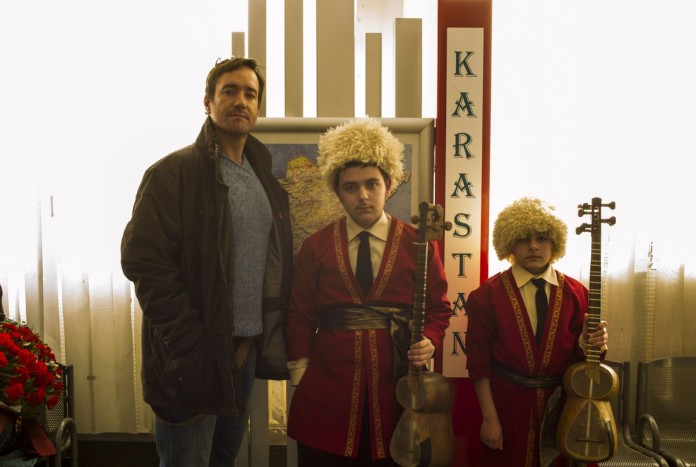Much like the title suggests, Ben Hopkins’ Lost in Karastan is having an identity crisis. At times appearing like a bonafide romantic comedy, we are continuously distracted by the narrative concerning the ignorance of a young and desperate filmmaker. While there are some noteworthy, comedic moments, implemented with a certain subtlety, the tone remains frustratingly inconsistent.
There are shades to Seth Rogen and James Franco’s The Interview, in witnessing creative protagonists outside of their comfort zone – but without the frivolity, taking a more earnest approach. Instead, there are more similarities to that of Lost in Translation, but without the genius of Bill Murray. For Matthew Mcfadyen plays Emil Forester, who is hired to direct a movie in Karastan – a fictional setting, based in the Caucasus region of Europe.
Macfadyen impressed as the lead – albeit a strong performance that remains an exception, as opposed to the rule. He gives us a character who shows empathy for others, and it turn becomes an endearing, relatable creation. In spite of that, you do have to dig deep for the purpose of this movie, as a possible meaning bubbles under the surface for the majority of the picture without ever truly rising to the top.
Eventually we get there, highlighted when Myanna Buring’s Chulpan utters the sentence, “it’s what a person will do for her country” – regarding dictatorship and loyalty, which may find a certain relevance in a contemporary world. Thankfully the finale ensures the film is not completely void of a meaningful plot, with a ending that brings about a sense of satisfaction – albeit ambiguous in its execution. In a tongue in cheek way, Hopkins humours the fact that most films don’t make an awful amount of sense towards the ending, as he mocks an archetypal, predictive ending to a Hollywood blockbuster.
As a result, Hopkins does leave you with a few questions, as you wonder whether or not the filmmaker is being deliberately elusive to play on stereotypes, or whether he’s genuinely unsure as which direction he wants to go in. There’s a touch of self-indulgence too, which is often a side-note to films about filmmakers – and it’s a criticism this surrealist title struggles to shake off.








